Alex Palou broke McLaren contract due to ‘lost trust and confidence’ over F1 opportunities
Alex Palou claims he "lost trust and confidence" in McLaren Racing's commitment to giving him a Formula 1 ride, prompting him to sever ties with the team, according to filings from his legal team in response to the racing team's lawsuit against him.
The claim is contained in what amounts to Palou’s first extensive public rebuttal to the suit filed in the High Court of Justice, Business and Property Courts of England and Wales Commercial Court in August. McLaren Racing is seeking damages of more than $22 million.
In the defense filing, a 20-page document obtained and reviewed by IndyStar, Palou's lawyers from Blackstone Chambers and Kennedys Law LLP admit for the first time the driver’s role in committing breaches (or anticipatory breaches) to multiple contracts with McLaren and Arrow McLaren that “entitle them to sue for damages.”
At the same time, Palou’s lawyers have classified the teams’ list of allegations against the driver as “embarrassing for want of particularity” and state that the issue between the parties is the amount Palou is liable for.
"In this regard," Palou's lawyers write, "the Claimants' damages are inadequately particularized, misconceived in a number of respects and vastly overinflated."
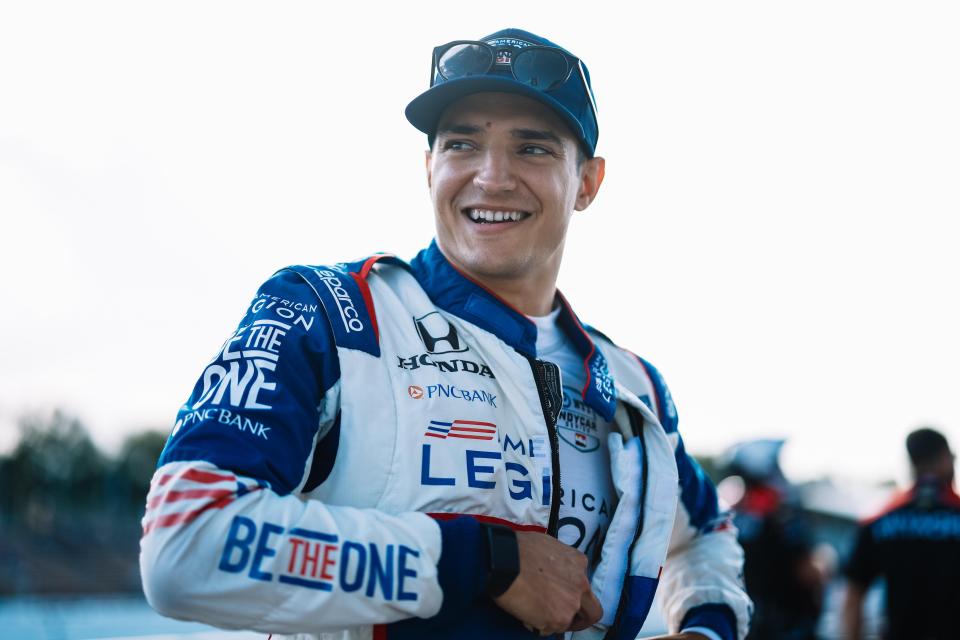
History of Palou, McLaren and Ganassi
Palou signed an IndyCar contract with McLaren while Ganassi held a team option to its then-title defending driver in the summer of 2022. CGR initiated its option – an action that was disputed by Palou – triggering what turned into a federal civil lawsuit filed by Ganassi against its driver.
Those two sides eventually reached compromise in mediation, allowing Palou to serve as a test driver for McLaren’s F1 team while serving out the final year of his IndyCar deal with CGR in 2023. Less than a month after that deal was struck, Palou and McLaren agreed to a three-year IndyCar contract in October of 2022 beginning in 2024.
On Aug. 8, Palou’s U.S.-based legal team informed McLaren Racing CEO Zak Brown that the driver had signed a new three-year deal with CGR in IndyCar and did not intend to fulfill his contract to McLaren. What followed was a war of words that involved Brown, Chip Ganassi, Palou’s now-former management company and, eventually, lawyers representing McLaren and Palou.
Palou’s lawyers now admit to contractual breach/anticipatory breaches by the driver, including ALPA Racing (Palou's personal services company he incorporates into his deals) failing to prevent Palou from entering into a conflicting contract and Palou failing to enable ALPA to comply with its obligations in the Driving and Promotions Agreements. They agree that Palou is “obliged to pay and discharge all sums of money and liability due … by (ALPA Racing).” But that total of $22 million? That fact, they’re firmly at-odds with McLaren.
Here’s how the parties’ positions differ:
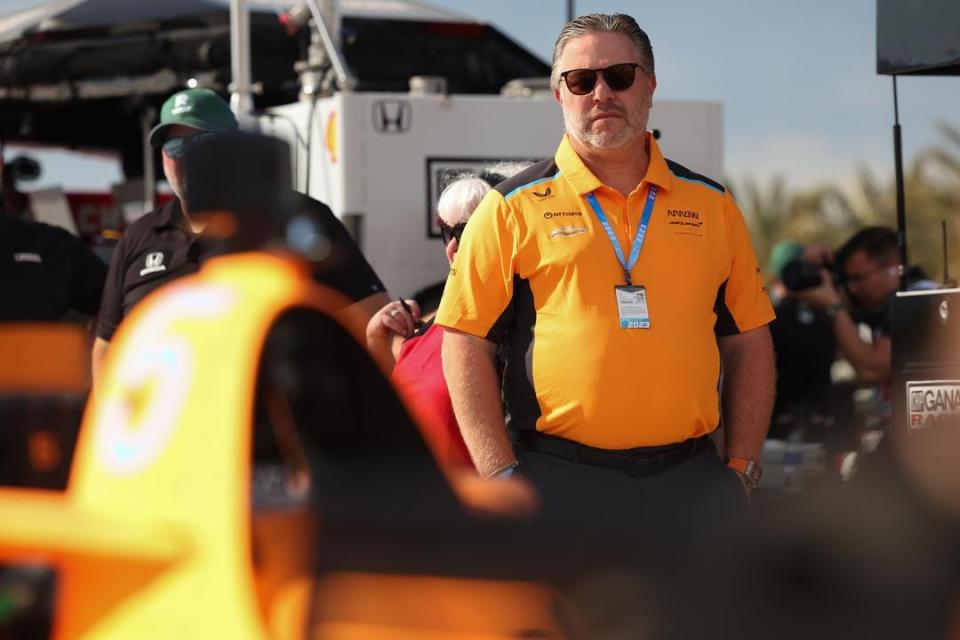
Insider: The 9 reasons McLaren believes Alex Palou owes $22 million for breach of contract
Was Palou really destined for an F1 ride?
Palou: His lawyers say signing with McLaren revolved around Palou racing in the Formula 1 series. It was only when Palou “lost trust and confidence that (McLaren) genuinely intended to support his ambition to race in (F1)” that he decided to breach his existing McLaren contracts and sign with CGR.
McLaren: The team’s legal filing from September noted an Aug. 21 letter from Palou’s lawyers “wrongly asserted” that McLaren had “represented and/promised” that Palou “would serve as a full-time F1 driver.” McLaren’s lawyers called the F1 promise “baseless.”
Of note: At the time Palou and McLaren initially negotiated in mid-2022, McLaren had months earlier signed its longtime driver Lando Norris to an extension through 2025. McLaren was also attempting to get out from under its three-year deal with driver Daniel Ricciardo that was set to run through the end of 2023, while working through the complicated process of signing 2021 Formula 2 champ Oscar Piastri to a full-time F1 deal.
As a rookie this July, Piastri notched back-to-back top-5 finishes. At the time, he was only signed through 2024. Any assertion from Palou’s camp that he was destined for an F1 ride would seem to suggest Palou would’ve been slotted in after a quick phasing out of Piastri or that McLaren was willing to let Norris walk – both are at odds with how fiercely they fought to sign the former and how centrally important the latter has been to the team’s rise in recent years.
The start of Palou’s breach of contract saga with McLaren came just over a month before the race team announced it had signed Piastri to a two-year extension through 2026.
'I'm sad the way it's worked out': Alex Palou responds to McLaren lawsuits
How should McLaren's damages be tabulated?
McLaren: The race team’s list of damages includes a combination of expenses they’ve incurred in the aftermath of Palou’s breaches (renegotiated deals and procuring replacement drivers), expenses they made while the two sides were in good standing (costs of his testing and simulator time), lost revenue the team could’ve made in selling Palou’s testing role to a pay-driver, lost future revenue (in IndyCar and F1) attributed to his absence and a $400,000 signing bonus.
Palou: Backed up by the simplest of Google searches, the driver’s legal team claims that it is not “lost revenue” that McLaren is entitled to claim, but “lost profits” related to Palou’s breach of contract – meaning they must take into account unintended cost savings like a likely far lower salary for Palou’s IndyCar replacement David Malukas.
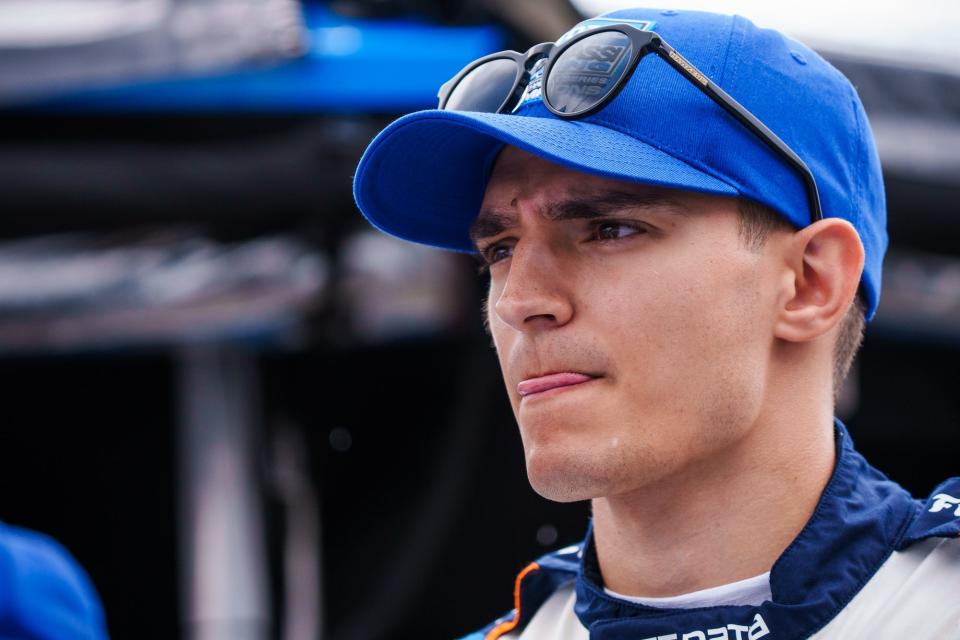
Is Palou responsible for McLaren's NTT losses?
McLaren: The team claims it has been forced to renegotiate a multi-year sponsorship contract with NTT Data, in which Palou was listed as one of three drivers to be part of the team’s future in order for the contract to be valid. Notably, NTT Data had been a longtime primary sponsor for CGR and was frequently on Palou’s car during his 2021 title run. The company left CGR after the 2022 season at the conclusion of its contract for Arrow McLaren. The team claims that was with the expectation it would be reunited with Palou.
As part of an estimated $6.9 million loss, McLaren said it in its latest filing that its best estimates were that it would lose $3.075 million in “demanded” reductions to NTT Data’s annual sponsor fee and $3.825 million in other benefits the team was now being required by its sponsor to offer free of charge in order to keep executives happy.
Palou: Palou’s team claim “there is no provision within the NTT Agreement of a kind which would entitle NTT to pay less by way of contractual consideration and/or terminate it entirely in the event that (Palou) were to not provide his services to (Arrow McLaren).” They go on to say that Palou is not referenced in any way of the deal and that it’s “not reasonable” for McLaren and Arrow McLaren to have sought to renegotiate what Palou’s camp sees as an “otherwise binding contract" that they believe wasn't written to be conditional on his actions.
Attempting to move on: How losing Palou will affect Zak Brown, Arrow McLaren
Is Palou responsible for McLaren's Chevy losses?
McLaren: The team revealed that within its annual contract for Chevy/General Motors to provide Arrow McLaren engines to power its IndyCar entries, the team is owed $500,000 as “team support,” as long as it runs full-time ‘A’ level drivers. After losing Palou, who had eight wins, 23 podiums and nearly two titles in three-plus seasons, Arrow McLaren signed second-year driver David Malukas – a young driver with just two podiums and no wins while with Dale Coyne Racing. It’s implied that losing Palou cost Arrow McLaren $500,000 per year for a total of $1.5 million.
Palou: Part of his lawyers’ explanation is redacted at the request of McLaren, so we don’t know the full reasoning behind their claim that there exists a provision in the contract language that, they believe, would allow Arrow McLaren to still receive the team support payments. They claim that there is only a loss if the team continues to fail to procure an ‘A’ level driver. They believe that Arrow McLaren “is likely to” have that driver talent – and if the team can’t, Palou isn't liable for this shortcoming.
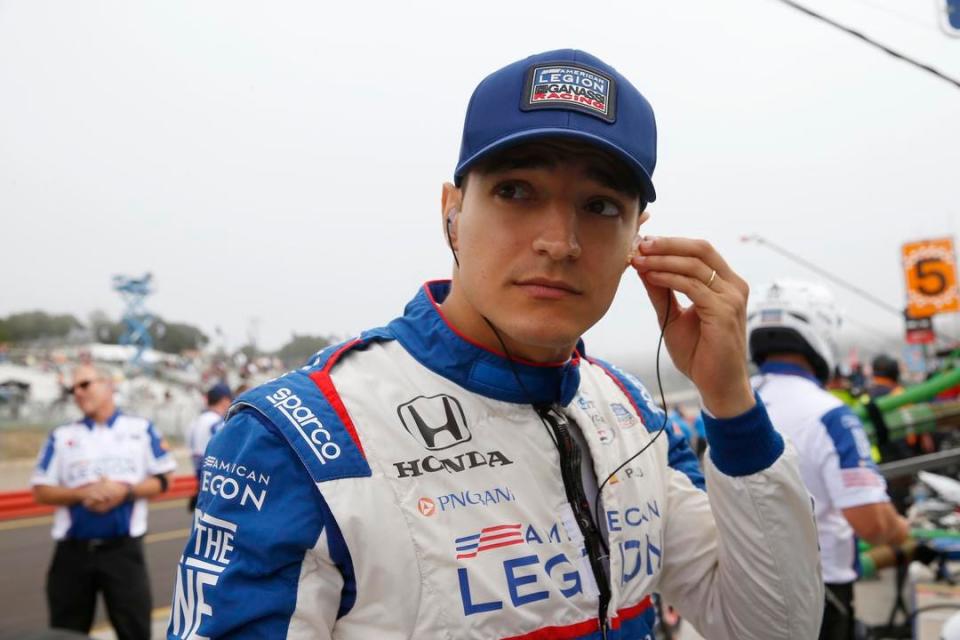
Is Palou responsible for McLaren's lost IndyCar and F1 revenues?
McLaren: The team claims it stands to lose $7 million, by its “best estimates,” in sponsorship, prize money, merchandise sales and name/image/likeness opportunities with “a driver with less experience, skill and/or professional renown” than Palou.
Having previously stated it never promised Palou a full-time F1 ride, McLaren still claims losses in its future F1 earnings (while declining to offer a specific amount), when compared to running “a driver with less public renown and geographic appeal.” It goes on to say that McLaren “intended to re-engage (Palou) to drive for it in (F1),” though it does not say when.
Palou: In calling these estimated losses “speculative in the extreme,” Palou’s lawyers say McLaren never lists in its filing how these various revenues would’ve been earned, the profit they would’ve netted and how they were calculated. They also call any attempt to claim future prize money futile, given that results can’t be “predicted with any degree of certainty,” along with the fact that driver and team performance also include the performance of mechanics, engineers, the car itself and other teams and drivers.
Additionally, Palou’s lawyers say McLaren fails to show that it even would have promoted Palou to a full-time F1 ride – while revealing that his current deal with CGR wouldn’t prevent that from happening today, proving that the driver’s breaches didn’t prevent McLaren from running him in F1 in the near-future. If they were truly attempting to mitigate their losses, the driver’s lawyers claimed, McLaren would’ve recently attempted to promote Palou to F1 in order to make them deserving of recouping those losses.
Furthermore, Palou's lawyers call any F1 losses for McLaren “too remote” to be recovered from a driver who didn’t have a full-fledged F1 deal (though his reserve driver deal permitted him to do so if he was called upon). They also point out that, had Palou been promoted to F1, McLaren would've experienced IndyCar losses anyways --arguing they can't claim both in their list of damages.
Is Palou responsible for McLaren's testing-related losses?
McLaren: The team’s lawyers argued that, had it not given Palou a spot in its small Testing of the Previous Car program, the F1 team could have hired a driver who was willing to pay for that opportunity for roughly $3.5 million. As part of that program, Palou did the bulk of his TPC runs back in the fall of 2022 ahead of his FP1 debut at the U.S. GP – some of which came in September of that year before he and McLaren had struck their new long-term deal Palou would go on to breach. He only tested for one day in June as part of the program in 2023.
Palou: His legal team contends Palou wasn’t in breach at the time of these tests and call it "inappropriate" to base McLaren's losses upon what they would've earned had they never struck a deal with Palou to begin with. Additionally, they believe that McLaren wouldn't have hired a pay driver for the test sessions, asserting the team would’ve simply looked for another up-and-coming IndyCar or junior formula-tract driver it would’ve wanted to be in its camp.
McLaren 'playing the victim': Chip Ganassi comments on Alex Palou's contract status
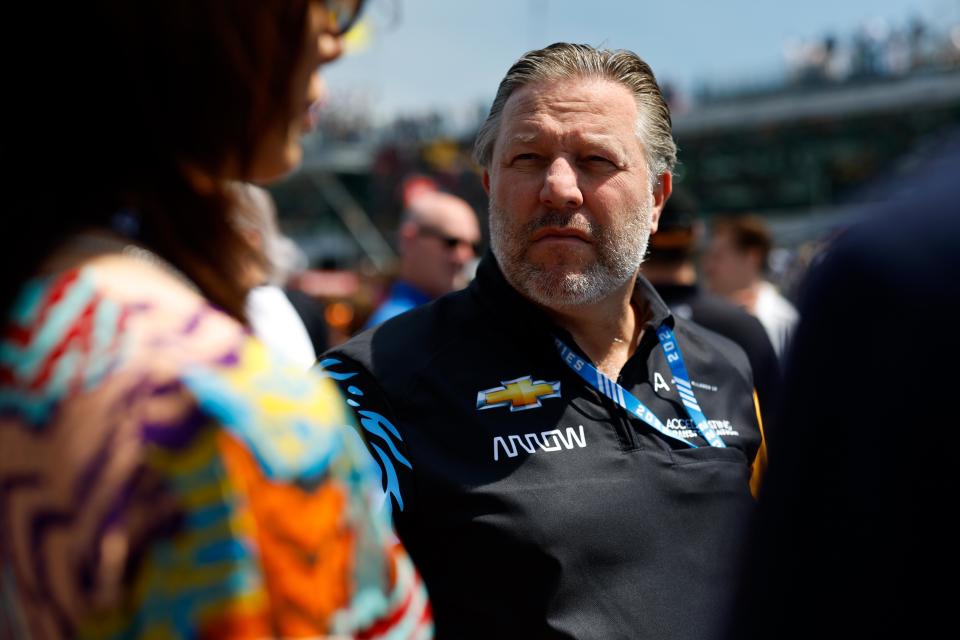
Is Palou responsible for McLaren's 'wasted expenses?'
McLaren: The team claims it lost “no less” than $2,772,750 in money spent that it sees as “wasted,” including $868,585 on “driver support” to Palou that includes costs associated with the TPC program, Palou’s simulator use and his kit, along with other equipment, power and labor costs associated with the above. The bridge that raises that loss to nearly $3 million comes from the team’s expenses to hire Palou’s IndyCar and F1 reserve replacement drivers.
It's also here McLaren categorizes the $400,000 signing bonus it paid Palou. Regarding that payment, the team's lawyers wrote in September: "By reason and in consequence of the Defendants’ breaches…there has been total failure of consideration thereunder, and the Claimants are therefore entitled to restitution of monies paid.”
Palou: The driver’s lawyers contend that McLaren has mischaracterized the damages it has listed under “wasted expenses” – those related to training Palou for his F1 tests, expenses tied to hiring new drivers and his six-figure signing bonus. They say McLaren attempting to recoup money it spent on Palou’s testing program, as well as the costs of hiring his F1 reserve driver replacement, amount to “double recovery.”
Additionally, Palou’s lawyers called the nearly $900,000 McLaren claims to have spent readying Palou for F1 runs “extraordinarily high”, given much of it involved him either running a simulator they already owned or a car that was already ready and in their possession.
Regarding McLaren's "very significant" costs to "find, recruit and train" Palou's replacement in IndyCar at the sum of nearly $2 million, Palou's lawyers claim these aren't "wasted expenses" but instead the cost of attempting to mitigate one's losses. They ask the court, instead, to judge how effectively McLaren may have actually decreased their expenses by hiring a driver in Malukas that likely required a cheaper salary – though its notable they conveniently failed to note the discrepancy between the two drivers’ resumes. Palou's lawyers used the same logic in regards to McLaren hiring his F1 reserve driver substitute.
As to Palou’s signing bonus, his lawyers revealed that the $400,000 neither went to Palou nor ALPA Racing USA, but instead to an unnamed separate Spanish company (though one still operated by Palou) – therefore insisting that neither of the defendants were “enriched.” Further, they write that the bonus was written into Palou’s contract and that he was entitled to the payment at the time it was made and that it wasn’t contingent on any on the performance of any duties. Even if it had been, they argue, Palou spent time in McLaren's simulator, tested for the team in June and attended the Miami GP in May as its reserve driver.
This article originally appeared on Indianapolis Star: Alex Palou admits breach of contract, challenges McLaren's damage claim

